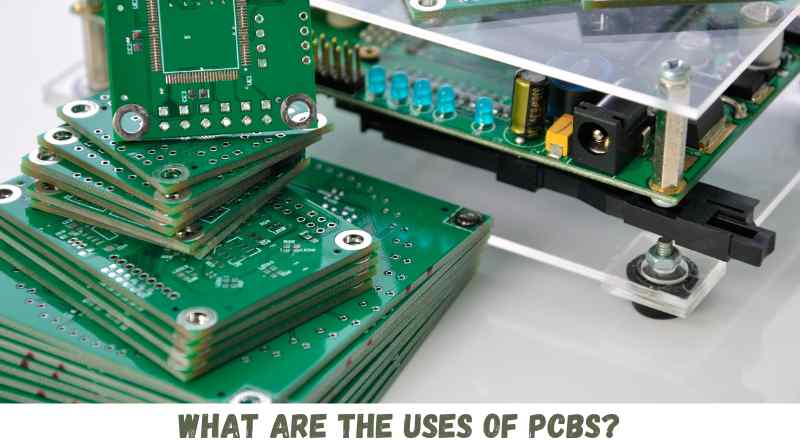PCBs, like the nerves in your body, are essential components in a vast array of electronic devices. From powering the dashboard of your car to enabling the functioning of your smartphone, PCBs play a crucial role in various industries. But have you ever wondered about the intricate ways PCBs are utilized beyond these common examples? Stay tuned to discover the lesser-known uses of PCBs in sectors like aerospace, medical devices, and industrial automation that might surprise you.
For more information on quality PCB manufacturing and design, OurPCB offers detailed insights and services tailored to your needs.
Key Takeaways:
- PCBs are essential in automotive systems for fuel efficiency and safety features.
- They drive innovation in consumer electronics for compact and efficient designs.
- PCBs ensure reliable connectivity in aerospace and defense systems for mission success.
- Medical devices rely on PCBs for precise functioning and communication between components.
Automotive Industry
PCBs play a crucial role in modern vehicles, enabling efficient electronic systems to enhance performance and safety. Your car’s engine control unit (ECU) relies on PCBs to ensure optimal fuel efficiency and engine performance. These boards help regulate the air-fuel mixture, ignition timing, and emissions control, contributing to smoother operation and reduced environmental impact.
Additionally, PCBs are instrumental in the implementation of advanced safety features in vehicles. Your anti-lock braking system (ABS) and airbag deployment systems utilize PCBs to respond swiftly and accurately in emergency situations. By facilitating rapid communication between sensors and actuators, these boards play a vital role in protecting you and your passengers on the road.
Moreover, PCBs support the integration of entertainment and navigation systems in modern cars. Your infotainment console, GPS navigation, and Bluetooth connectivity all rely on these boards to deliver seamless functionality and an enhanced driving experience. Thanks to PCBs, your vehicle is equipped with the technology to keep you safe, informed, and entertained on the go.
Consumer Electronics
When it comes to consumer electronics, modern devices rely heavily on advanced electronic components for their functionality and performance. Printed circuit boards (PCBs) play a crucial role in the operation of smartphones, tablets, laptops, TVs, and various other gadgets that have become essential parts of everyday life. These compact boards provide a platform for connecting various electronic components, such as microprocessors, memory chips, and sensors, allowing seamless communication and data processing within the device.
PCBs in consumer electronics are designed to be compact, lightweight, and efficient to meet the demands of portable and high-performance devices. The intricate circuitry of PCBs enables devices to perform complex functions while maintaining a sleek and user-friendly design. From power distribution to signal transmission, PCBs ensure that consumer electronics operate reliably and efficiently.
The use of PCBs in consumer electronics continues to evolve, with advancements in technology leading to smaller and more powerful devices. As consumers expect faster speeds, higher capacities, and increased functionality from their electronics, PCBs play a vital role in meeting these demands and driving innovation in the industry.
Aerospace and Defense
In the aerospace and defense industries, innovative electronic components play a critical role in enhancing the performance and capabilities of cutting-edge systems and equipment. Printed circuit boards (PCBs) are vital in these sectors due to their ability to provide reliable connectivity and functionality in complex environments such as aircraft, satellites, missiles, and defense systems.
PCBs used in aerospace and defense applications are designed to meet stringent requirements for reliability, durability, and performance under extreme conditions. These boards are often required to withstand high levels of vibration, shock, and temperature variations while maintaining optimal functionality. The compact nature of PCBs also allows for efficient use of space in aerospace and defense equipment, contributing to overall weight reduction and improved performance.
Furthermore, PCBs enable the integration of advanced technologies such as radar systems, communication systems, navigation equipment, and electronic warfare systems, enhancing the operational capabilities of military aircraft, spacecraft, and defense systems. The use of PCBs in aerospace and defense demonstrates the importance of reliable electronic components in ensuring the success and safety of missions and operations in these critical industries.
Medical Devices
The application of advanced electronic components extends beyond aerospace and defense industries to the field of medical devices, where innovative technologies are revolutionizing patient care and treatment. Printed circuit boards (PCBs) play a crucial role in various medical devices, such as MRI machines, pacemakers, and infusion pumps. These devices rely on PCBs to ensure precise functioning and accurate data processing.
PCBs in medical devices provide a compact and reliable platform for integrating complex electronic systems. They allow for miniaturization of devices, making them more portable and efficient for medical professionals to use in different healthcare settings. The high precision and reliability of PCBs contribute to the accuracy of medical diagnostics and treatments.
Moreover, PCBs enable the seamless communication between different components within medical devices, enhancing their overall performance and functionality. As technology advances, PCBs continue to evolve to meet the specific requirements of the medical industry, ensuring the delivery of safe and effective healthcare solutions for patients worldwide.
Industrial Automation
Industrial automation revolutionizes manufacturing processes by integrating advanced technologies to streamline production and enhance efficiency. By utilizing PCBs in industrial automation, you can achieve seamless control over machinery and processes, leading to increased productivity and reduced human intervention. PCBs serve as the backbone of automated systems, providing reliable connections for sensors, actuators, and control units.
Incorporating PCBs into industrial automation equipment allows for precise monitoring and regulation of variables such as temperature, pressure, and speed. With the ability to program specific tasks and sequences, PCBs enable consistent and error-free operation of manufacturing processes. This level of automation not only boosts production rates but also ensures consistent product quality.
Moreover, PCBs play a crucial role in data acquisition and analysis within industrial automation systems. They facilitate communication between different components, enabling real-time data exchange and decision-making. By implementing PCBs in industrial automation, you can optimize resource utilization, minimize downtime, and ultimately enhance the overall efficiency of your manufacturing operations.
Are There Any Environmental Concerns Associated With the Manufacturing and Disposal of Pcbs?
When making and disposing of PCBs, environmental concerns arise due to their toxic nature. Proper handling and disposal methods are crucial to prevent harm to ecosystems and human health. It’s essential to follow regulations for safe practices.
How Do PCBs Impact the Overall Performance and Reliability of Electronic Devices?
To ensure optimal performance and reliability of electronic devices, PCBs play a crucial role. Through their efficient design and layout, PCBs facilitate the proper functioning of components, enhancing overall device performance and durability.
What Advancements Are Being Made in PCB Technology to Improve Efficiency and Functionality?
To enhance efficiency and functionality, advancements in PCB technology include miniaturization, increased component density, and improved signal integrity. These developments cater to your needs for smaller, faster, and more reliable electronic devices.
Can PCBs Be Recycled or Reused in Any Way to Reduce Electronic Waste?
You can recycle or reuse PCBs to reduce electronic waste. Reclaiming materials from old PCBs for new electronics is an eco-friendly practice. By recycling or repurposing PCBs, you contribute to a more sustainable approach to electronic manufacturing.
What Are the Potential Risks of Using PCBs in Electronic Devices, and How Are These Risks Mitigated?
When using PCBs in electronic devices, potential risks like toxic exposure exist. Mitigate these risks through proper handling, disposal, and adherence to safety guidelines. Be vigilant in reducing exposure to harmful substances and protecting both the environment and yourself.
Also Read: Apps






